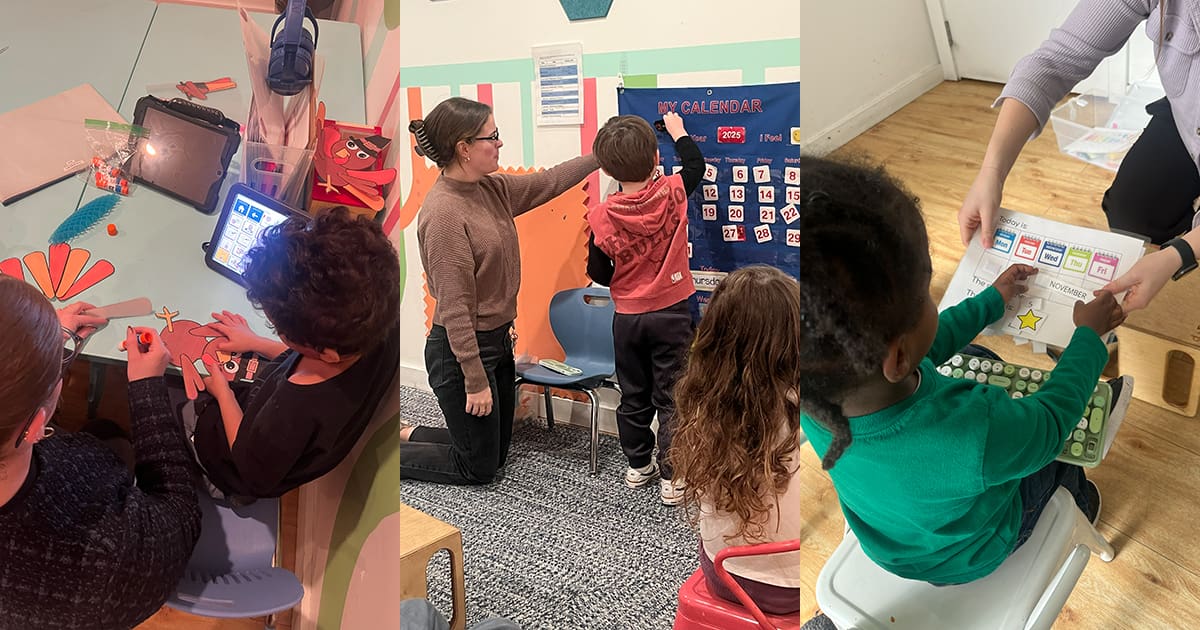Share this Post

As parents, we’re often focused on what our child is doing—whether they’re playing with a toy, interacting with a peer, or reacting to a change in routine. But understanding why they’re doing it is just as important, especially when it comes to behaviors that may seem challenging or confusing. For children with autism or developmental delays, behavior is a form of communication. Identifying the underlying functions of behavior is the key to helping them thrive.
At CST Academy, we work closely with families to uncover the meaning behind behaviors and use evidence-based strategies to support positive development. This article will explore the four main functions of behavior, how they relate to your child’s needs, and practical tips for addressing challenging behaviors while fostering emotional growth and independence.
What Are the Functions of Behavior?
In behavioral science, every behavior serves a purpose or function. When children engage in certain actions—whether it’s throwing a toy, refusing a task, or clapping with excitement—they are trying to fulfill a specific need. Understanding this underlying need allows parents, caregivers, and therapists to respond effectively and help guide the child toward positive behaviors.
The four primary functions of behavior are:
- Escape or Avoidance
- Attention
- Access to Tangibles (Objects or Activities)
- Sensory Stimulation (Automatic Reinforcement)
Let’s take a closer look at each function and how you can identify them in your child’s behavior.
Escape or Avoidance: When Children Want to Get Away from Something
What It Looks Like:
- Your child runs away when it’s time to clean up toys.
- They throw a tantrum when asked to do homework.
- They cover their ears and leave the room when there’s loud noise.
Why It Happens:
Escape-motivated behaviors occur when a child wants to avoid an unpleasant situation, task, or sensory input. This could be due to difficulty understanding instructions, sensory sensitivities, or fear of failure.
How to Address It:
- Break tasks into smaller, manageable steps: If a task feels overwhelming, break it down to make it more achievable.
- Offer choices: Allowing your child to choose between two tasks can give them a sense of control while still completing the activity.
- Use positive reinforcement: Reward your child for completing tasks, even if they’re small wins. This builds confidence and reduces avoidance behaviors.
- Create sensory-friendly environments: If the behavior is related to sensory discomfort, provide tools like noise-canceling headphones or fidget toys.
Attention: When Children Seek Interaction from Others
What It Looks Like:
- Your child yells or interrupts while you’re on the phone.
- They throw a toy when their sibling is getting more attention.
- They make repetitive noises or gestures to capture your attention.
Why It Happens:
Children often seek attention from parents, teachers, or peers as a way to feel acknowledged, included, or comforted. Negative attention (such as scolding) can sometimes reinforce the behavior if the child feels it’s their only way to be noticed.
How to Address It:
- Provide positive attention proactively: Spend time engaging with your child when they are behaving appropriately to reduce their need to seek attention through negative behaviors.
- Ignore minor attention-seeking behaviors: If the behavior isn’t harmful, ignoring it can prevent reinforcement. Instead, provide attention when they engage in positive actions.
- Teach alternative behaviors: Encourage your child to use phrases like “Excuse me” or raise their hand when they want attention. Reinforce these behaviors with praise or rewards.
Access to Tangibles: When Children Want a Specific Object or Activity
What It Looks Like:
- Your child cries or has a tantrum when you take away their tablet.
- They grab a toy from another child without asking.
- They refuse to leave the park when playtime is over.
Why It Happens:
Access-motivated behaviors occur when a child wants a tangible item, like a toy, snack, or preferred activity. These behaviors can happen when they are denied access to something or when transitioning away from a favorite activity.
How to Address It:
- Teach waiting skills: Use visual timers or countdowns to help your child understand when they can have the item.
- Set clear expectations: Let your child know how long they can play or use an item before it’s time to transition.
- Offer alternatives: Provide another fun activity or item as a substitute to help with transitions.
- Use “First, Then” schedules: For example, “First, clean up your toys, then you can have your tablet.”
Sensory Stimulation: When the Behavior Feels Good or Relieves Discomfort
What It Looks Like:
- Your child rocks back and forth or flaps their hands when excited or anxious.
- They hum, tap their fingers, or spin objects repeatedly.
- They cover themselves in a blanket or seek deep pressure input.
Why It Happens:
Sensory-seeking behaviors provide automatic reinforcement because they feel good or help the child regulate their sensory system. This can include seeking tactile, auditory, visual, or vestibular input.
How to Address It:
- Provide sensory breaks: Schedule regular sensory activities, like jumping on a trampoline or using a weighted blanket, to help meet their sensory needs.
- Offer appropriate alternatives: Redirect repetitive behaviors to acceptable activities, such as sensory bins, fidget toys, or noise-canceling headphones.
- Consult an occupational therapist: They can help design a sensory diet tailored to your child’s needs.
How CST Academy Helps Identify and Support the Functions of Behavior
At CST Academy, we take a holistic approach to understanding and addressing behavior. Our team of behavior analysts, speech therapists, and occupational therapists work together to identify the functions of behavior and create personalized strategies that promote positive outcomes. Here’s how we do it:
- Behavior Assessments:
We conduct detailed assessments to determine the function of specific behaviors and understand what triggers them. - Individualized Behavior Intervention Plans:
Our team develops tailored plans that address the underlying function of the behavior while teaching alternative, positive behaviors. - Parent Training and Collaboration:
We work closely with parents to provide practical strategies they can implement at home, ensuring consistency across environments. - Positive Reinforcement:
We focus on reinforcing desirable behaviors to help children learn new skills and reduce reliance on negative behaviors.
Practical Tips for Parents: What You Can Do at Home
- Observe and Reflect: Pay attention to when and where behaviors occur. What happened before and after the behavior? Identifying patterns can help you uncover the function.
- Be Consistent: Consistency across home and school settings is key. Collaborate with teachers, therapists, and caregivers to create a unified approach.
- Use Visual Supports: Visual schedules, social stories, and “First, Then” boards can help children understand expectations and transitions.
- Praise and Reward Positive Behavior: Acknowledge your child’s successes, no matter how small, to encourage continued progress.
Final Thoughts: Understanding Behavior is the First Step to Growth
Behavior is a form of communication, and understanding its purpose is the first step to helping your child navigate the world with confidence and success. By identifying the function behind each behavior, you can respond with empathy and effective strategies that foster learning and connection.
At CST Academy, we’re here to support your family every step of the way. If you’d like to learn more about our behavior intervention programs and how we can help your child develop positive behaviors, contact us today.
Discover Our Pediatric Therapy & Autism Care
ABA Therapy
Support for children with autism.
Autism Evaluation
Expert assessments to identify child needs.
Pediatric Therapy Services
Speech, Occupational, Feeding, and Physical Therapy.
Therapeutic Preschool
A classroom environment designed for early learners with unique needs.

Find the Best Care for Your Child




